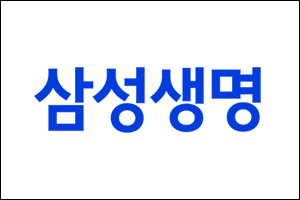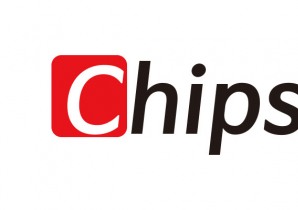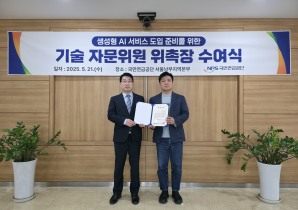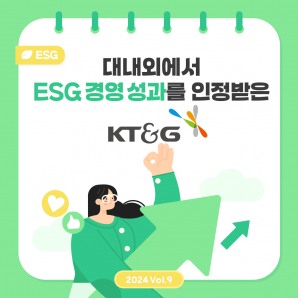According to F&G on the 14th, POSCO Holdings is expected to post sales of 18.68 trillion won and operating profit of 880.2 billion won in the third quarter of this year. This is down 1% in sales and 26% in operating profit from the third quarter of last year. Compared to the second quarter of this year, sales are expected to increase by 1% and operating profit by 17%.
Hyundai Steel's third-quarter forecast is for sales of 5.87 trillion won and operating profit of 116.3 billion won. This is down 7% and 49% from the same period last year. Compared to the previous quarter, sales are down 3%, but operating profit is up 19%.
However, securities firms that released reports on the steelmaker this month are lowering their expectations. The reasoning is that the profitability improvement from the production cuts will be slower than expected as steel demand shows no signs of rebounding.
On the 11th, Baek Jae-seung, a senior researcher at Samsung Securities, set a third-quarter operating profit forecast of 822.8 billion won for POSCO. This was 6.4% below the consensus. “We do not expect overseas steel subsidiaries to show much improvement due to sluggish market conditions,” Baek said.
Hyundai Steel is expected to miss the operating profit consensus by more than 10%. Park Sung-bong, a researcher at Hana Securities who set the lowest forecast for operating profit at 84 billion won, said the company's sales volume of its flagship product, bar steel, “will shrink 4.2% from the previous quarter and fixed costs will expand significantly.”
The slump in the domestic steel industry began in earnest in the first half of last year. Due to the prolonged economic slowdown in China, local steelmakers have shifted their strategy to expand exports. The downward pressure on prices from China's “low-cost offensive” has led to a significant deterioration in the profitability of domestic steelmakers.
In particular, domestic steelmakers have reportedly failed to take advantage of the shipbuilding boom as domestic shipbuilders also favor cheaper Chinese products. This is why Hyundai Steel filed an anti-dumping complaint against Chinese thick plates with the Ministry of Trade, Industry and Energy in July.
The domestic steel industry has recently welcomed the Chinese government's strong commitment to stimulate the economy. As Chinese demand is digested at home, domestic oversupply pressure will be reduced and overall steel prices will benefit.
However, the consensus is that the timing of the rebound in steel demand should be approached conservatively, given the lack of specificity in China's stimulus program.
“We have seen two years of disappointment in the past when Chinese policy announcements were not followed by a recovery in real data,” said Baek senior researcher, ”It remains to be seen whether a positive change in the Chinese government's attitude will trigger a real recovery in Chinese steel demand through the flow of macro data in the coming months.”
Gwak Horyung (horr@fntimes.com)

































![[DCM] 태광산업, EB 발행 납득 어려운 이유…누적 유보율 ‘7만%’](https://cfnimage.commutil.kr/phpwas/restmb_setimgmake.php?pp=006&w=69&h=45&m=5&simg=2025070413353009491a837df64942192515869.jpg&nmt=18)
![김동원 한화생명 사장, 인니 노부은행 주주로…글로벌 종합금융그룹 도약 [세계로 뻗는 K-보험]](https://cfnimage.commutil.kr/phpwas/restmb_setimgmake.php?pp=006&w=69&h=45&m=5&simg=2025070504283807225dd55077bc212411124362.jpg&nmt=18)
![[신간] 금융개혁 2035](https://cfnimage.commutil.kr/phpwas/restmb_setimgmake.php?pp=006&w=69&h=45&m=5&simg=2025070409385407936c1c16452b012411124362.jpg&nmt=18)
![[DCM] CJ CGV · LS엠트론 · 하림지주, '미매각' 굴욕… 계열·업종이 명암 갈랐다 [2분기 리뷰(II)]](https://cfnimage.commutil.kr/phpwas/restmb_setimgmake.php?pp=006&w=69&h=45&m=5&simg=2025070414500107092141825007d12411124362.jpg&nmt=18)
![[르포] 용산구 명물 ‘용산 제주유스호스텔’로 반값여행…1박 가격은?](https://cfnimage.commutil.kr/phpwas/restmb_setimgmake.php?pp=006&w=69&h=45&m=5&simg=2025070118420402744b372994c951245313551.jpg&nmt=18)

![[7월 2주 청약일정] 수도권·지방 동시 출격… 6000가구 넘는 분양 물량 '봇물'](https://cfnimage.commutil.kr/phpwas/restmb_setimgmake.php?pp=006&w=69&h=45&m=5&simg=2025070414450201962b372994c951245313551.jpg&nmt=18)












![[카드뉴스] KT&G ‘Global Jr. Committee’, 조직문화 혁신 방안 제언](https://cfnimage.commutil.kr/phpwas/restmb_setimgmake.php?pp=006&w=298&h=298&m=1&simg=202503261121571288de68fcbb3512411124362_0.png&nmt=18)


![[카드뉴스] 국립생태원과 함께 환경보호 활동 강화하는 KT&G](https://cfnimage.commutil.kr/phpwas/restmb_setimgmake.php?pp=006&w=298&h=298&m=1&simg=202403221529138957c1c16452b0175114235199_0.png&nmt=18)
![[카드뉴스] 신생아 특례 대출 조건, 한도, 금리, 신청방법 등 총정리...연 1%대, 최대 5억](https://cfnimage.commutil.kr/phpwas/restmb_setimgmake.php?pp=006&w=298&h=298&m=1&simg=20240131105228940de68fcbb35175114235199_0.jpg&nmt=18)
![[신간] 리빌딩 코리아 - 피크 코리아 극복을 위한 생산성 주도 성장 전략](https://cfnimage.commutil.kr/phpwas/restmb_setimgmake.php?pp=006&w=81&h=123&m=5&simg=2025032814555807705f8caa4a5ce12411124362.jpg&nmt=18)
![[신간] 지속 가능 경영, 보고와 검증](https://cfnimage.commutil.kr/phpwas/restmb_setimgmake.php?pp=006&w=81&h=123&m=5&simg=2025011710043006774f8caa4a5ce12411124362.jpg&nmt=18)
![[서평] 추세 매매의 대가들...추세추종 투자전략의 대가 14인 인터뷰](https://cfnimage.commutil.kr/phpwas/restmb_setimgmake.php?pp=006&w=81&h=123&m=5&simg=2023102410444004986c1c16452b0175114235199.jpg&nmt=18)

![[신간] 금융개혁 2035](https://cfnimage.commutil.kr/phpwas/restmb_setimgmake.php?pp=006&w=81&h=123&m=5&simg=2025070409385407936c1c16452b012411124362.jpg&nmt=18)
![[신간] 똑똑한 금융생활...건전한 투자와 건강한 재무설계 지침서](https://cfnimage.commutil.kr/phpwas/restmb_setimgmake.php?pp=006&w=81&h=123&m=5&simg=2025031015443705043c1c16452b012411124362.jpg&nmt=18)

![[AD] ‘상품성↑가격↓’ 현대차, 2025년형 ‘아이오닉 5’·‘코나 일렉트릭’ 출시](https://cfnimage.commutil.kr/phpwas/restmb_setimgmake.php?pp=006&w=89&h=45&m=1&simg=202505131018360969274925877362115218260.jpg&nmt=18)
![[AD] 현대차 ‘아이오닉9’·기아 ‘EV3’, ‘2025 탑기어 전기차 어워즈’ 수상](https://cfnimage.commutil.kr/phpwas/restmb_setimgmake.php?pp=006&w=89&h=45&m=1&simg=202505091106510520874925877362115218260.jpg&nmt=18)
![[카드뉴스] KT&G ‘Global Jr. Committee’, 조직문화 혁신 방안 제언](https://cfnimage.commutil.kr/phpwas/restmb_setimgmake.php?pp=006&w=89&h=45&m=1&simg=202503261121571288de68fcbb3512411124362_0.png&nmt=18)
![[AD] 기아, 혁신적 콤팩트 SUV ‘시로스’ 세계 최초 공개](https://cfnimage.commutil.kr/phpwas/restmb_setimgmake.php?pp=006&w=89&h=45&m=1&simg=2024123113461807771f9c516e42f12411124362.jpg&nmt=18)
![[AD] 아이오닉5 '최고 고도차 주행 전기차' 기네스북 올랐다...압도적 전기차 입증](https://cfnimage.commutil.kr/phpwas/restmb_setimgmake.php?pp=006&w=89&h=45&m=1&simg=2024123113204707739f9c516e42f12411124362.jpg&nmt=18)


